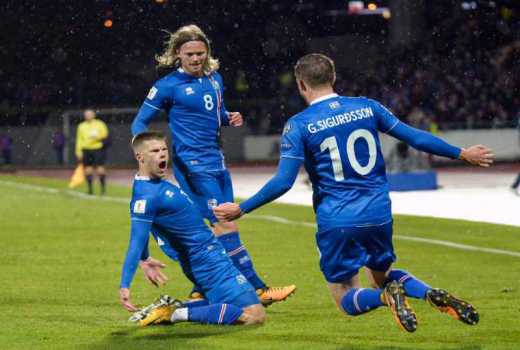×
The Standard e-Paper
Stay Informed, Even Offline

Iceland's forward Johann Berg Gudmundsson (L) celebrates scoring with his team-mates Iceland's midfielder Birkir Bjarnason (C) and Iceland's midfielder Gylfi Sigurdsson (R) during the FIFA World Cup 2018 qualification football match between Iceland and Kosovo in Reykjavik, Iceland on October 9, 2017. [Photo/Courtesy]
Any neutrals looking for a team to get behind at the World Cup shouldn’t look any further than Iceland, a feel-good story of international football that just keeps on giving.